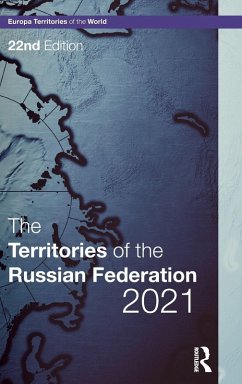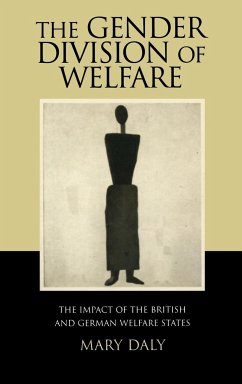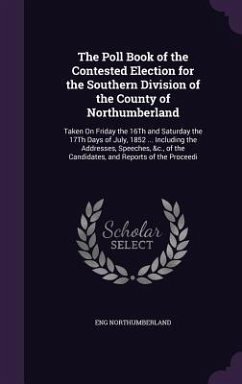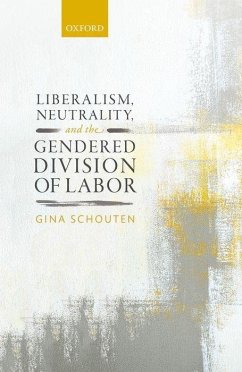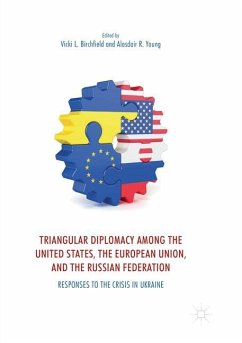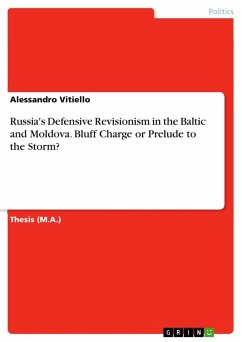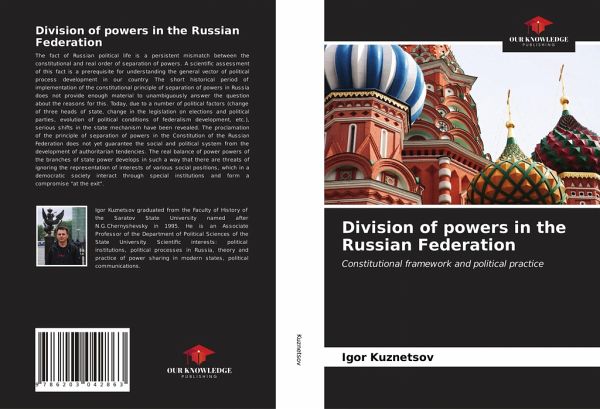
Division of powers in the Russian Federation
Constitutional framework and political practice
Versandkostenfrei!
Versandfertig in 1-2 Wochen
44,99 €
inkl. MwSt.

PAYBACK Punkte
22 °P sammeln!
The fact of Russian political life is a persistent mismatch between the constitutional and real order of separation of powers. A scientific assessment of this fact is a prerequisite for understanding the general vector of political process development in our country. The short historical period of implementation of the constitutional principle of separation of powers in Russia does not provide enough material to unambiguously answer the question about the reasons for this. Today, due to a number of political factors (change of three heads of state, change in the legislation on elections and po...
The fact of Russian political life is a persistent mismatch between the constitutional and real order of separation of powers. A scientific assessment of this fact is a prerequisite for understanding the general vector of political process development in our country. The short historical period of implementation of the constitutional principle of separation of powers in Russia does not provide enough material to unambiguously answer the question about the reasons for this. Today, due to a number of political factors (change of three heads of state, change in the legislation on elections and political parties, evolution of political conditions of federalism development, etc.), serious shifts in the state mechanism have been revealed. The proclamation of the principle of separation of powers in the Constitution of the Russian Federation does not yet guarantee the social and political system from the development of authoritarian tendencies. The real balance of power powers of the branches of state power develops in such a way that there are threats of ignoring the representation of interests of various social positions, which in a democratic society interact through special institutions and form a compromise "at the exit".





